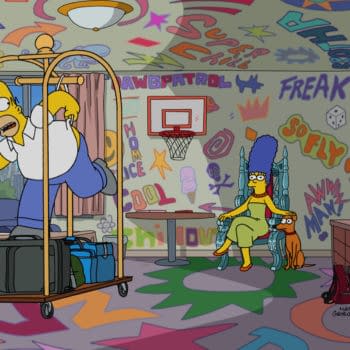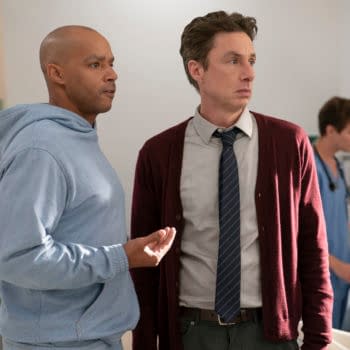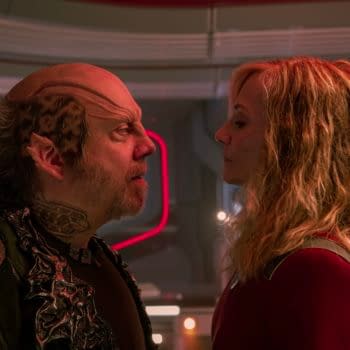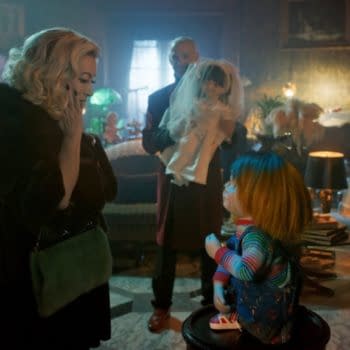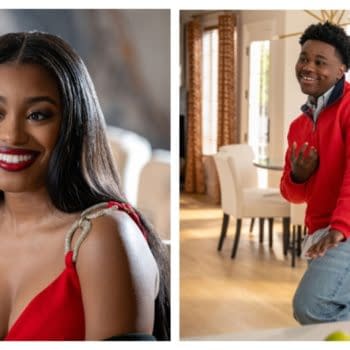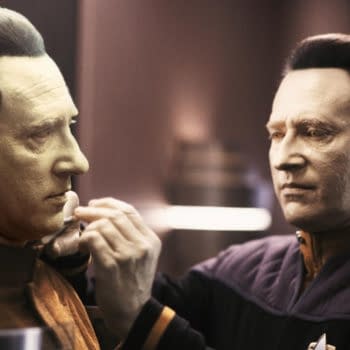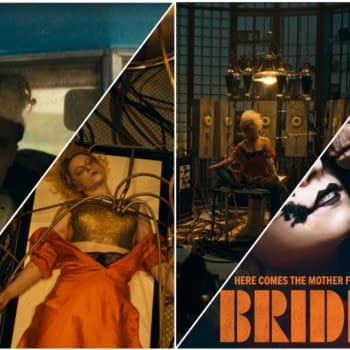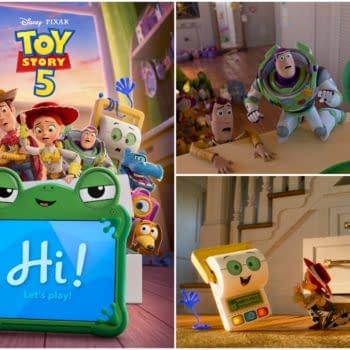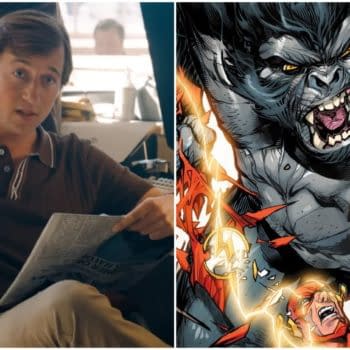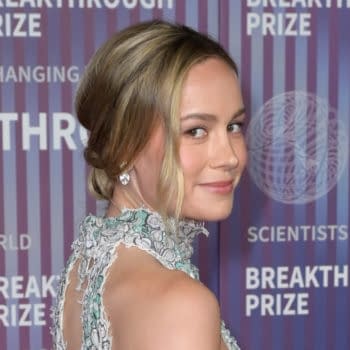Posted in: Exclusive, Horror, Interview, Movies | Tagged: exclusive, Gia Crovatin, House of Darkness, interview, justin long, kate bosworth, Lucy Walters, neil labute, Saban Films
House of Darkness: Neil LaBute on His Passion for Dracula & Theatre
Neil LaBute has always been able to blend deep social commentary into every project, no matter the genre, since his debut in 1997's In the Company of Men. He's also had a passion for Bram Stoker's world he created in "Dracula" and the theatre. The writer and director can blend all three in his horror thriller House of Darkness, a twist on the Stoker lore starring Justin Long as Hap Jackson, who takes his date Mina Murray (Kate Bosworth) to her home in a secluded estate from a bar. As the two familiarize themselves, Hap realizes that not everything is as it seems. LaBute spoke to Bleeding Cool about how the film came to be and how Long and Bosworth drive the narrative.
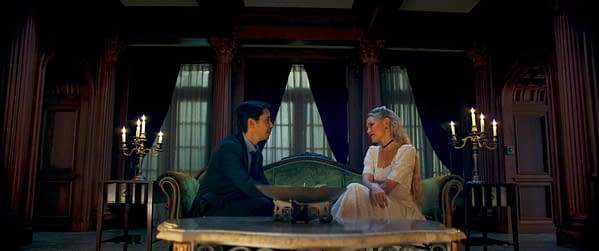
Bleeding Cool: What's the inspiration behind the 'House of Darkness?'
LaBute: Part of it was 'Dracula:' The idea of taking a portion of that Jonathan Harker story and updating it to something current. The other goes to my theater days. I like chamber pieces where you have people in one location. They spend a lot of time talking and creating tension. When COVID was rampant, we were looking for ways to make something with a small cast and crew. This story felt like an ideal one to tackle at the time.
Can you break down how the cast came together?
Justin came to us through one of the producers, and the producer had a connection to him. He liked the script and stayed with us for quite a when we were trying to finance it. I also worked with him on stage for a theater benefit. I sent Kate the script, which I also worked with previously, and she responded favorably. After coming on board, they immediately had good chemistry, which was important since they spent the majority of the film together. When we were rehearsing, they clicked right away.
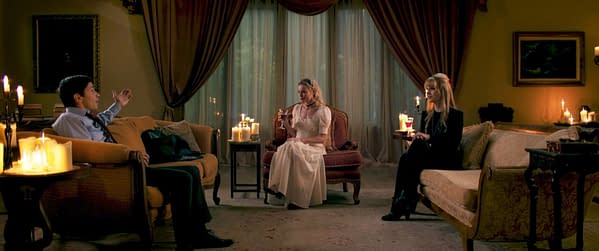
You referenced Bram Stoker's 'Dracula' as inspiration for 'House of Darkness,' and you also worked on the TV series 'Van Helsing.' Did the show have any form of influence on the final result?
I think so because I spent a lot of time looking at 'Dracula' during that. We used particular things from that text, and I also adapted it to the stage years before. I had a fair number of connections, and it all helped. Anything you can do to research or make connections. [From that work], I was able to draw a parallel or sneak in a reference. It always helps give you a greater sense of texture to whatever you're doing. It definitely brought all of that to bear on 'House of Darkness.'
Was the most difficult thing when it came to pacing and the build-up to the end?
That's a good question. There's no one part that's more difficult because you're always looking at the whole. When you're doing something like this where you have a limited number of locations or, in this case, one large location, then you're going throughout this property. I'm trying to use it as economically but as interestingly as possible. It's a chess game of blocking out where you're going, how much of this you'll play here, and where we will move. We shot in Arkansas at a private residence, even in this limited place. There was the theory of, "We're going to shoot here. We're going to go outside, and we're going to do this."
We are constantly either at the mercy of the weather or shooting at night with the inherent environmental difficulties that come. We were second-guessing what we should do and asked if we move this scene outside. For variety's sake, we split this up and tried to find a suitable location for that [climactic] dream sequence was going to be.
It's all in the plotting and planning when you move the chess pieces around the board. Could we bring in a third actor, and then one leaves, and another pops late in the game. It was a matter of utilizing the house to our advantage to create a sense of it being not a play but a movie that's very controlled. That was the biggest thing for me because a lot of time was spent sitting and talking frankly, and how do you make that as interesting as possible?
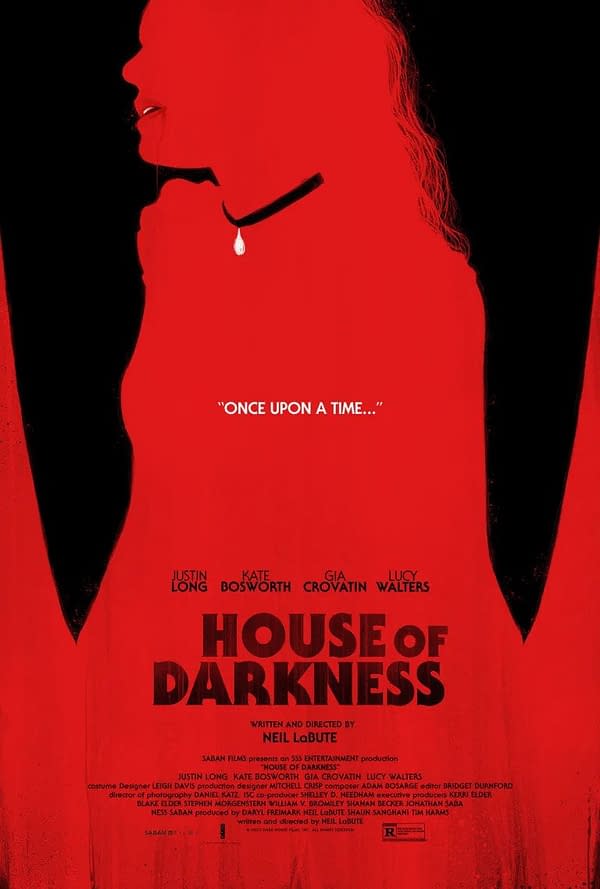
When looking at Justin and Kate's interactions, there was a bit of social awkwardness. Was there some improvisation involved between the two, or was it all intentional from the script?
A lot of what was on the page was on the screen, and I'm pretty meticulous in creating dialog sounding natural and theatrical. It has its own personality to it, but we rehearsed and came to different passages. We were very rigid about the best material here, asking, "Is there anything repeating itself? Is there anything that can go? Is there anything not moving us forward?" They're moving around, but it means creating a tension and moving on to the next idea.
All the actors were instrumental in coming up with ideas and ways to approach their characters. You want it to feel when you're writing it, and it's you acting out these characters in your head. They all sound like you, and when you get an actor breathing life into it, they create something different and special. You want to give them that freedom to be able to say, "This works for me," or "This doesn't; let me try something." I like Improvisation, but I also don't think it's the answer to everything. You can create entire scenes and take a new way. Often it's creating bridges between ideas or a different spin on a line. Somebody comes up with a great tagline to a scene. It was a mix of both.
House of Darkness, which also stars Gia Crovatin and Lucy Walters, is in theaters, digital and on-demand.






